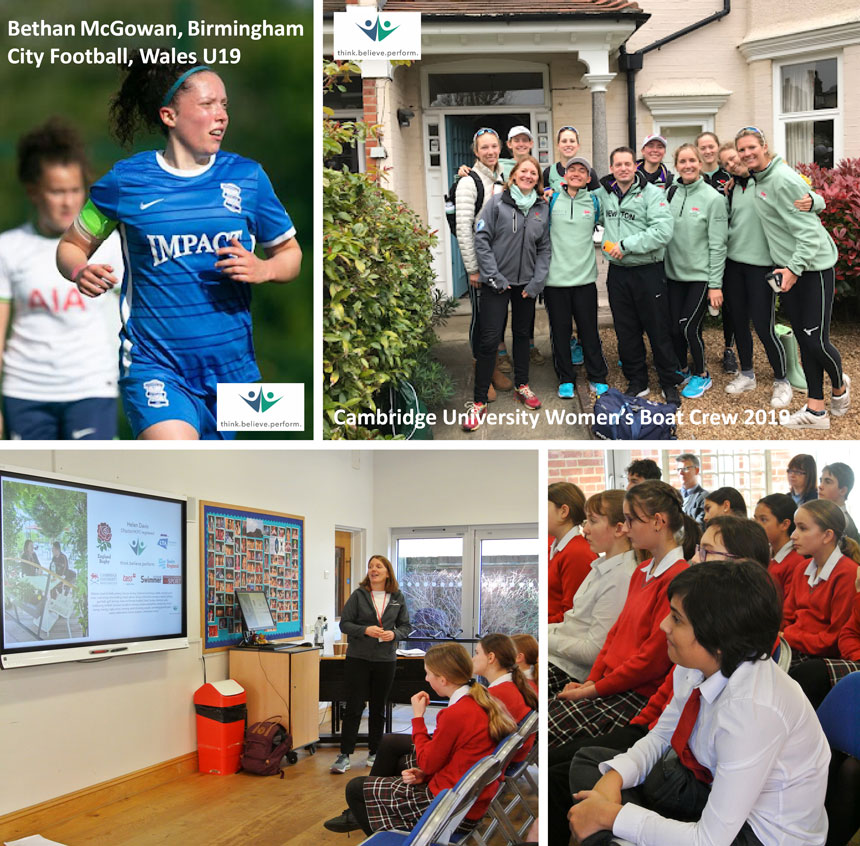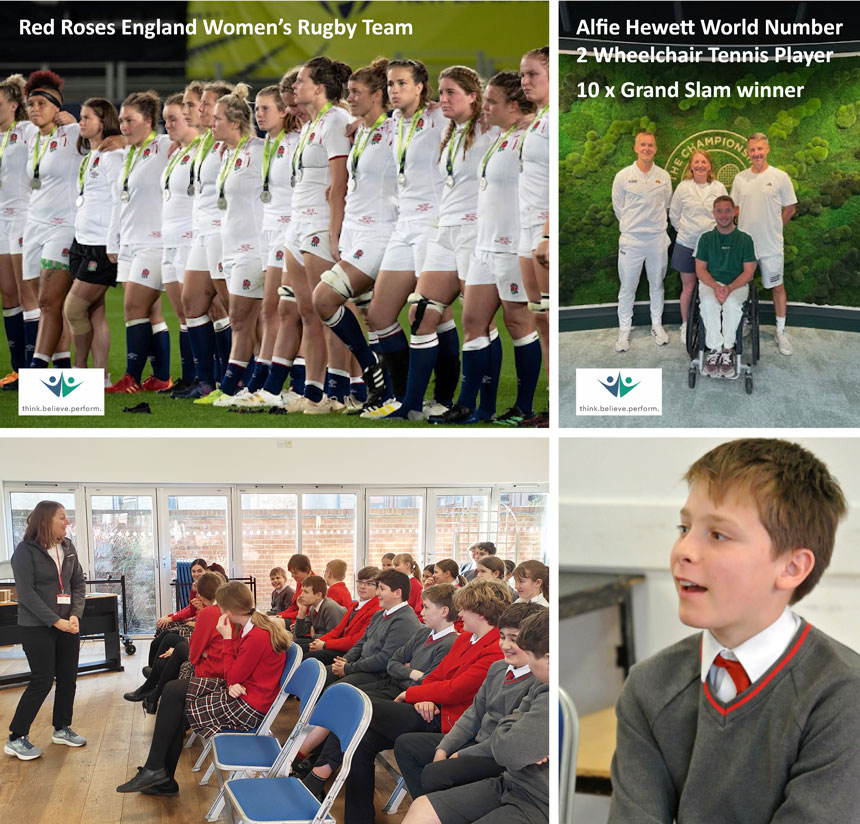Chartered sport psychologist and founder and director of 'think.believe.perform', Helen Davis, gave an inspirational talk to Form 6 about what we can learn from highly successful athletes. Helen believes that achieving success in sport depends not only on your physical ability but also very much on the strength of your mindset.
I love supporting athletes to achieve sporting goals, discovering what works for each person or team and collaborating to achieve the best possible mindset, which is so powerful and can make such a different to performance.

Helen has extensive experience working across a broad range of sports, collaborating with accomplished athletes at various levels. She has worked with new exercisers, fitness enthusiasts, club members, performance pathways athletes, GB and international squad members, full time professionals, National, European and Commonwealth medalists and Paralympic Champions.
She used the successful 2019 Cambridge University Women's Boat Crew to illustrate how important a sense of belonging is in sport in terms of having a shared purpose in order to reach success.
When you belong you are far more likely to succeed.
Helen explained that working with athletes such as World Number 2 wheelchair tennis player, Alfie Hewett, emphasised how important it is to develop real mastery in your sport as it not only enhances an athlete's performance but also builds mental and physical resilience, adaptability and leadership qualities.

I have not failed, I have just found ten thousand ways that won't work. (Thomas Edison)
The talk also covered the importance of self-confidence, maybe not to have huge confidence that you can achieve something, but to have 100% confidence that you can give it your very best shot. Helen used her work with swimmer David Dyer to illustrate how when you put the process ahead of the outcome you can focus on the moment. David completed a solo English Channel crossing in 11 hours and 44 minutes after dealing positively with his mental battle prior to the swim.
Helen explained to Form 6 that it is crucial to have a 'tool kit' of practical strategies to help you when things do not go your way such as 'letting go' of poor performances, re-focusing on the present and developing the attitude that disappointments challenge us to work harder.
You can't be great at anything unless you explore it right to the edge and if you're going to the edge, mistakes will definitely follow. That's the way it is. If you're looking for the comfort of not making mistakes and not failing, you'll finish up mediocre...but reaching greatness requires falling off the edge loads of times and having the courage to get back up and get on with it.
(Padraig Harrington, golfer)